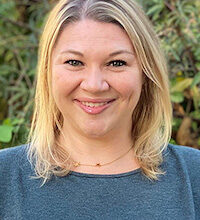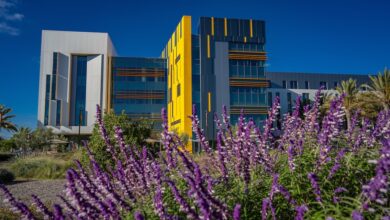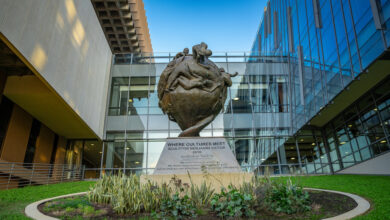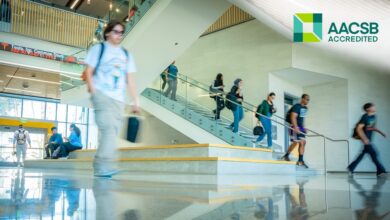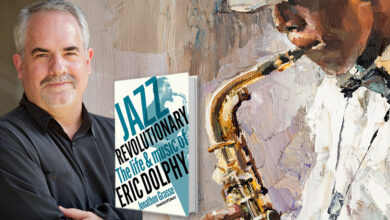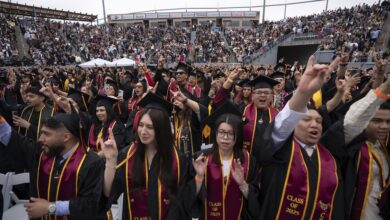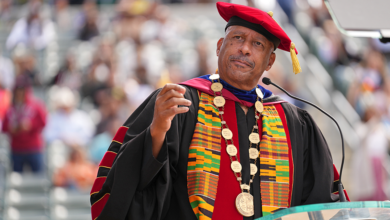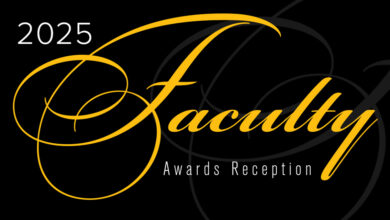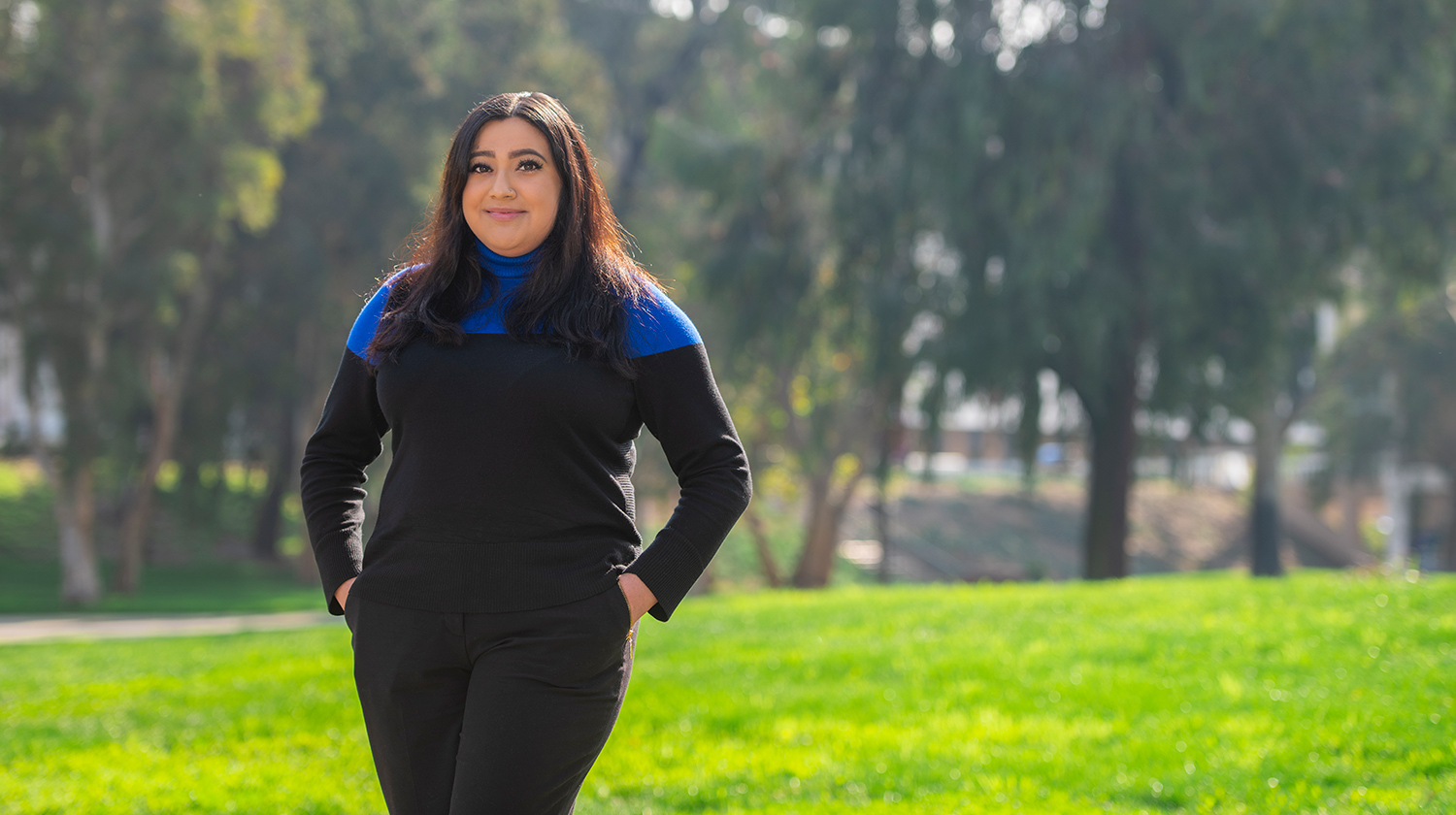
Despite being one of the smallest teams competing, the CSUDH Forensics Team produced some impressive results during the recent 2021 UTEP Classic Forensics Tournament. Under the direction of head coach Shaunte Caraballo, four of the team’s five members have now qualified for the National Forensics League’s National Individual Events Tournament in April.
The team has competed in four events this academic year, with team members winning honors at three of them. At the UTEP Classic, Pravinesh Chand (theatre arts major) won first place in Poetry Interpretation, Eli Sarceno (sociology) took second place in Dramatic Interpretation, and Lafie Bradford (communications) placed sixth in Poetry Interpretation.
All three won invitations to the nationals for their success. They will join Kirsty Muro (theatre arts), who had already qualified with her second place showing in Prose Interpretation at the 2020 ProtoCommunications Fall Tournament.
Chand’s first place win at the UTEP event was for his piece weaving together poems by South Asian poet Alok Vaid Menon and a Hindi song. “I chose these pieces because they speak to gender roles in my own Indian community. I shared them with Professor Caraballo and she helped me create a piece where I could argue about gender issues while also connecting it to me as a person.”
For Chand, winning the event “means a lot, because I won for performing a piece that resembled a part of my life. I never had the opportunity to perform a truly authentic piece of myself. Forensics gave me the chance to do that. Professor Caraballo created a safe space for me to explore that, and has helped me on my self-identity journey. I have since came out as non-binary/genderfluid. I’ve discovered I’m more than what society tells me I am. Forensics has been helping me understand myself more each day.”
Sarceno chose pieces from Guillermo Reyes’ play “Bad Hombres (Date Me or Deport Me),” a collection of comic monologues in which a variety of characters explore Latinx cultural and sexual identity. “Ulysses, my character, is an immigrant queer male looking for acceptance from society, family and himself,” explains Sarceno. “I wanted to acknowledge and give voice to those who are afraid to speak up, especially those who may even be rejected from within their own cultural kin.”
Sarceno adds, “The forensics team has given me a safe outlet to be creatively expressive. I am proud and elated to be a part of a CSUDH team!”
Muro, like Chand, is a theatre arts major who enjoys competing in the Prose Interpretation category because “It’s like I’m acting. I love it!” She uses a piece called “Yes Means Yes” by Elna Baker, which explores a young woman’s difficulties living as a Mormon in New York City. “I chose that piece because of how well it fit me colloquially. It spoke someone’s truth and represents pure, honest reflection.”
Bradford chose to focus her Poetry Interpretation entry on works related to an issue that resonates with her: names and their proper pronunciation. “All of these extraordinary poets have the same interest in mind–wanting people to pronounce their names correctly and give their unique names respect,” she says.
“I also have a unique name,” adds Bradford. “It’s hard when people are challenged by saying and understanding my name. It creates an identity crisis. My piece demonstrates how important it is to understand a person by their name and how we all feel about having unique names.”
Like most activities, the COVID-19 pandemic has forced forensics tournaments to be conducted differently. “Everything is virtual this year,” says Caraballo, who is also an assistant professor and speech coordinator in the CSUDH Theatre and Dance Department. “Tournaments have been conducted in both synchronous and asynchronous formats. We’ve been doing asynchronous tournaments because the majority of our students are so busy! They have jobs, go to school full-time, some have families, so the asynchronous tournaments have been the easiest for us.”
Caraballo says the format enables her to work closely with team members. “The students work with me individually in coaching sessions every week, for about an hour each week, and then they record their speeches to video.” The completed videos are then submitted to the tournament judges.
The asynchronous nature of the tournaments makes the students’ success all the more remarkable, she adds. “Normally, you win because you can see what the competition is, and you’re learning from those people. But now, the students have no idea what other people are doing, and they’re just relying on me and the ballots they get back from the tournaments to keep improving and getting better. That makes it even more impressive!”
Caraballo has been coaching the team since she started teaching at the university in 2019. None of the five team members had competed in forensics before joining the team. As Caraballo says, “We’re just getting started, but we’re doing really well!”
The national tournament in April will provide a big stage for the small CSUDH Forensics Team, but they are up for the challenge. For her part, Bradford is hopeful that the team’s success will get more students engaged. “I hope people come out and support us after the pandemic ends, because it’s fun to watch and we would love the support from our fellow Toros,” she says.

